How To: Prime & Composite Numbers & Factors
Here, you will learn all you need to know about prime and composite numbers. What Is a Prime Number?

Here, you will learn all you need to know about prime and composite numbers. What Is a Prime Number?
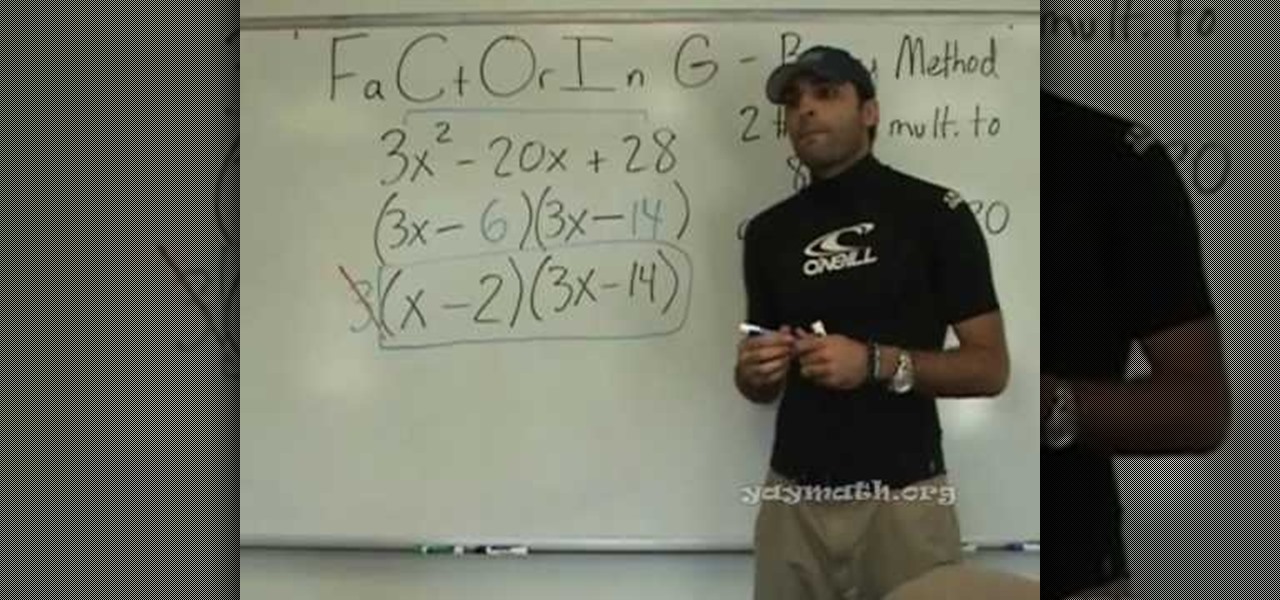
In this free video math lesson YAY MATH, we learn how to factor trionmials using the Berry method. With mathematics, as with anything else, not everyone progresses at the same rate. Algebra is no exception. Happily, in the age of Internet video tutorials, this isn't a problem. Those who progress quickly can go beyond what's being taught them and those who are struggling likewise have all the time in the world to catch up. Whether you need help finishing your homework or studying for that next...
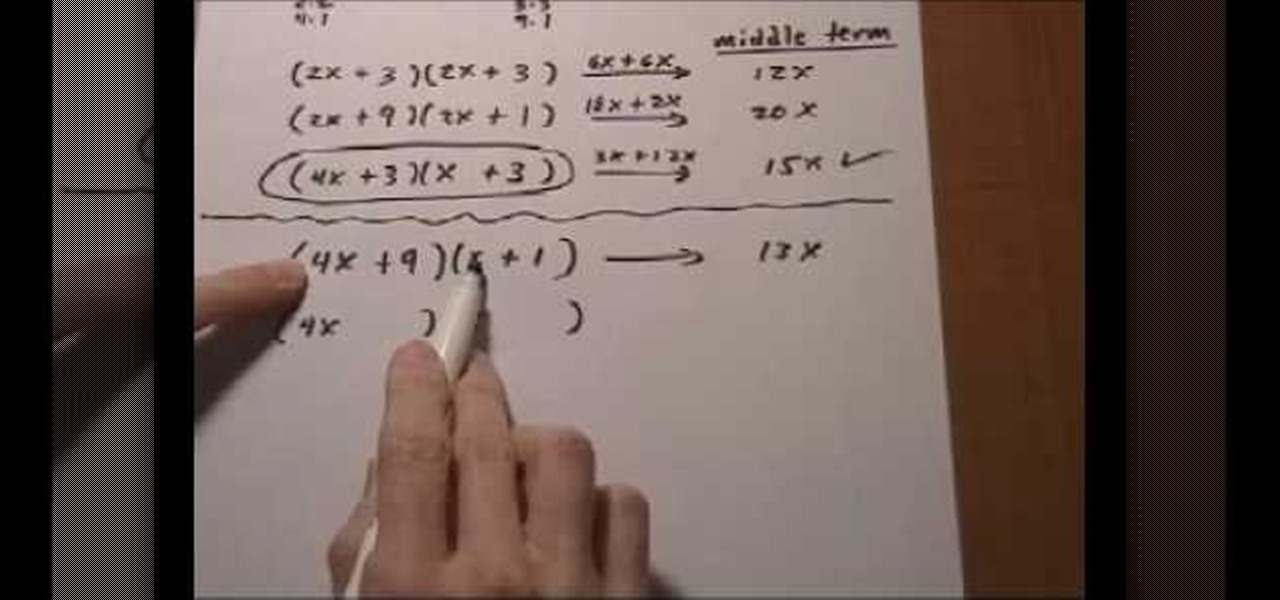
Factorization of a trinomial can be achieved by using the standard method of appropriately "splitting the middle term" or by this method as shown in the video.

If you're living in the U.S., you're probably wondering who the hell Cheryl Cole is, and whether or not "X Factor" is some sort of porn star competition. Well, "X Factor" happens to be the UK version of "American Idol," produced by our lovable teddy bear Simon Cowell.
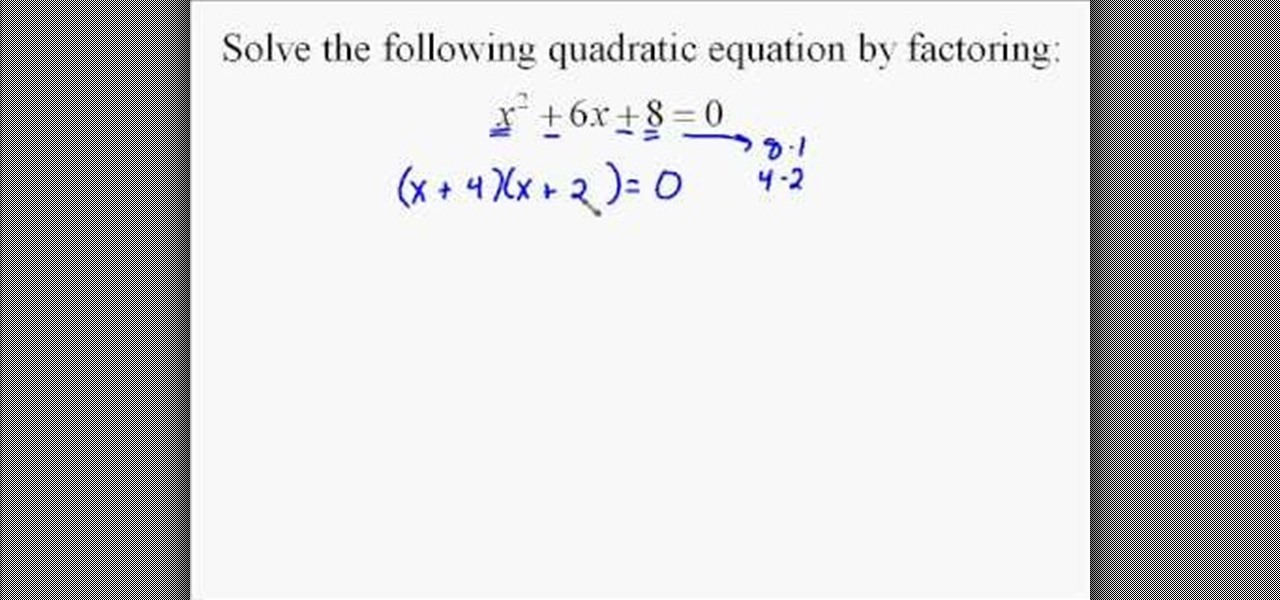
See how to solve quadratic equations in algebra through factoring with this free video math lesson. Factoring quadratic expressions is easy once you know the system. Learn it with this how-to. From Ramanujan to calculus co-creator Gottfried Leibniz, many of the world's best and brightest mathematical minds have belonged to autodidacts. And, thanks to the Internet, it's easier than ever to follow in their footsteps (or just finish your homework or study for that next big test).

Need to find the greatest common factor for a set of two numbers? Try a factor tree! Learn how with this free video lesson. From Ramanujan to calculus co-creator Gottfried Leibniz, many of the world's best and brightest mathematical minds have belonged to autodidacts. And, thanks to the Internet, it's easier than ever to follow in their footsteps (or just finish your homework or study for that next big test).

This video gives you brief tutorial on simplifying expressions, or canceling out common factors. He starts out by answering the question "What is canceling?" and demonstrates a basic example. You find the greatest common factor between the numerator and denominator, which you then divide both by. This can also be done if you have variables in your fraction. He then shows it can be done the same way if you have binomials in your fractions. However, you must be careful that the denominator does...

The aim of the video is to show how to reduce a fraction by factoring out prime numbers that are common to both the numerator and the denominator. The example shown in the video is 27/21. The number 27 can be achieved by multiplying 3 by 9 and the number 21 is the result of 3 multiplied by 7. The common factor, therefore in both the numerator and the denominator is 3. 3 on the top divided by 3 on the bottom is 1 and so this can be removed without affecting the value of the fraction, leaving 9...
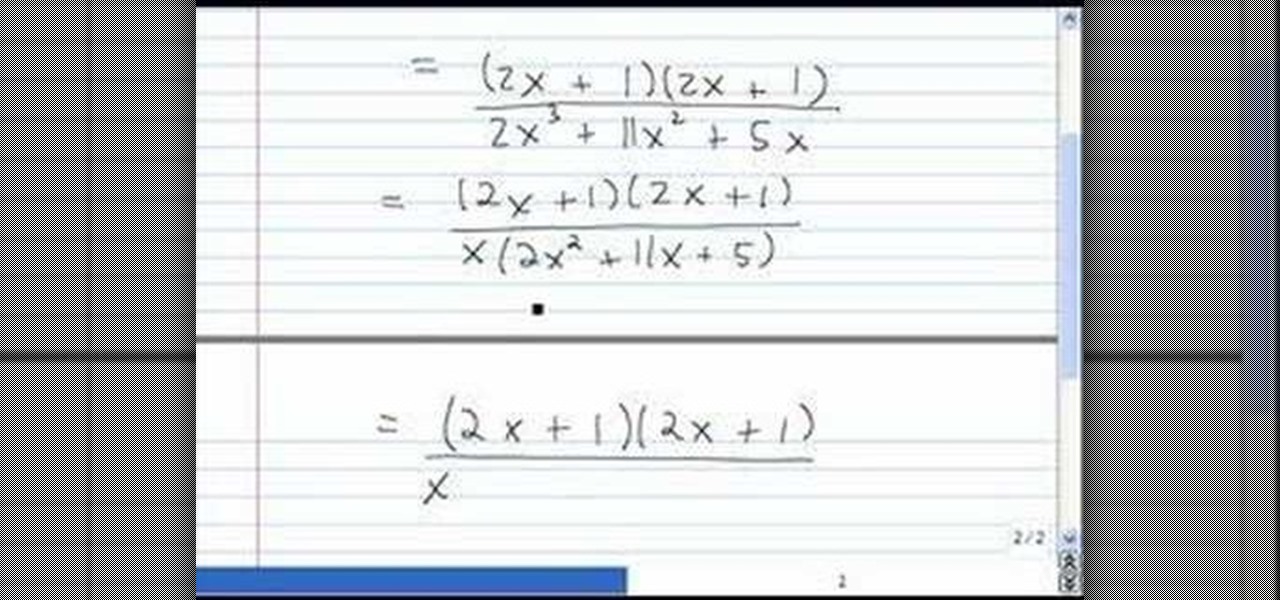
This video shows the method to simplify rational expressions. The example used in the video is multiple of 4 and x square plus multiple of 4 and x plus 1 or (4x^2 + 4x + 1)/(2x^3 + 11x^2 + 5x). As the first and last term is a perfect square we get the simplified numerator as (2x + 1)(2x + 1). Next, the denominator is simplified. Taking the common factor out we get x(2x^2 + 11x + 5). Now we factorize 2x^2 + 11x + 5. We get (2x + 1)(x + 5 ). Now, writing the terms in numerator and denominator w...
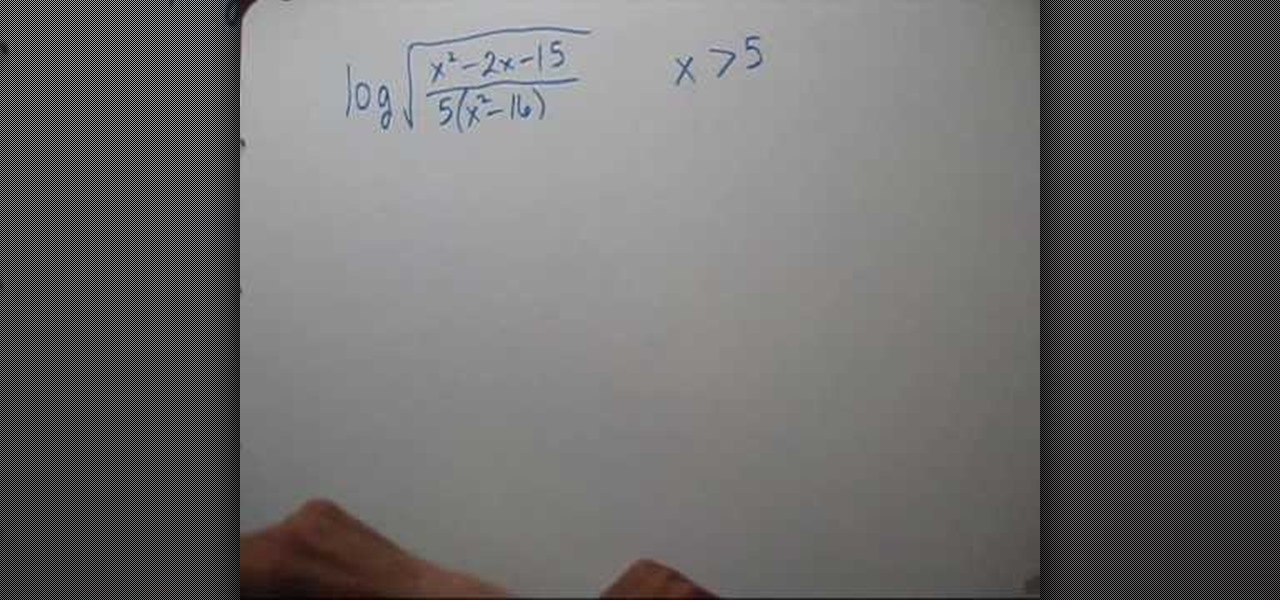
This video shows the method to write a logarithm as a sum or difference of logarithms. The square root of the term given is taken out as half according to the rule. Then the numerator and denominator is divided into product of factors. This is broken into the difference of numerator and denominator according to the rule. Finally, the product of factors is expressed as the sum of factors. Now we see the domain of the term. As the term is a square root of the term it should be greater than zero...
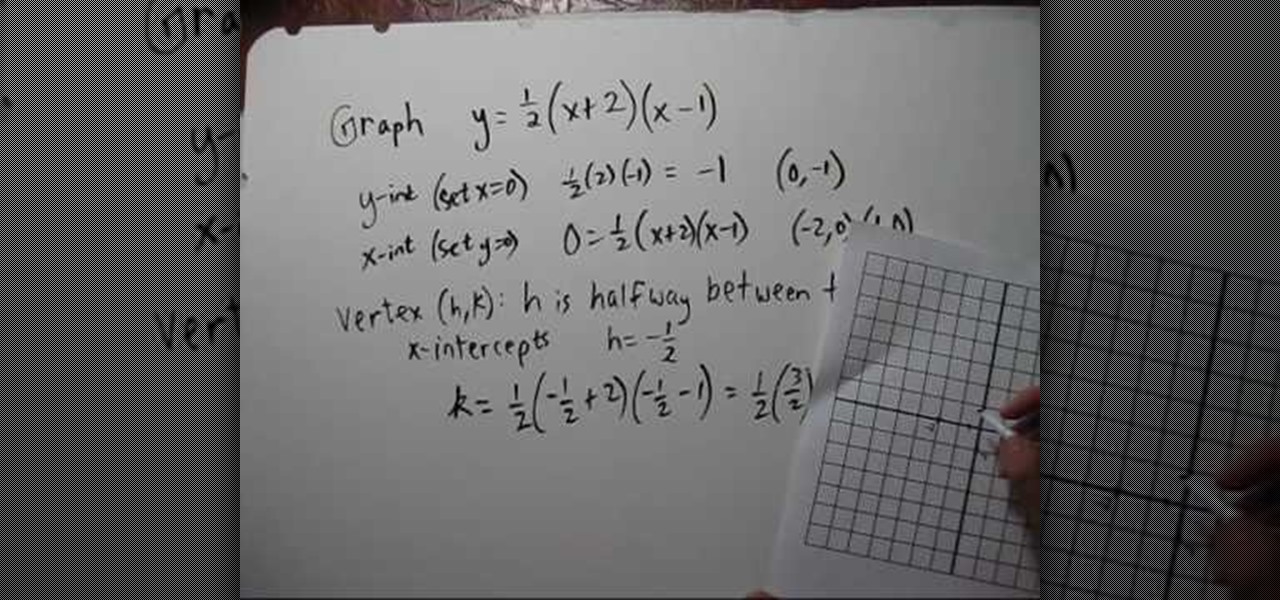
This video deals with solving quadratic functions. It does not involve the use of the quadratic equation; rather, only factored equations are used. The speaker starts out with a factored quadratic equation. The speaker goes on to do the mathematical steps necessary to find both the x and y intercepts of the quadratic function at hand. The author then continues on with the example to find the function's minimum. Next all of the points that have been solved for are plotted and the function is s...
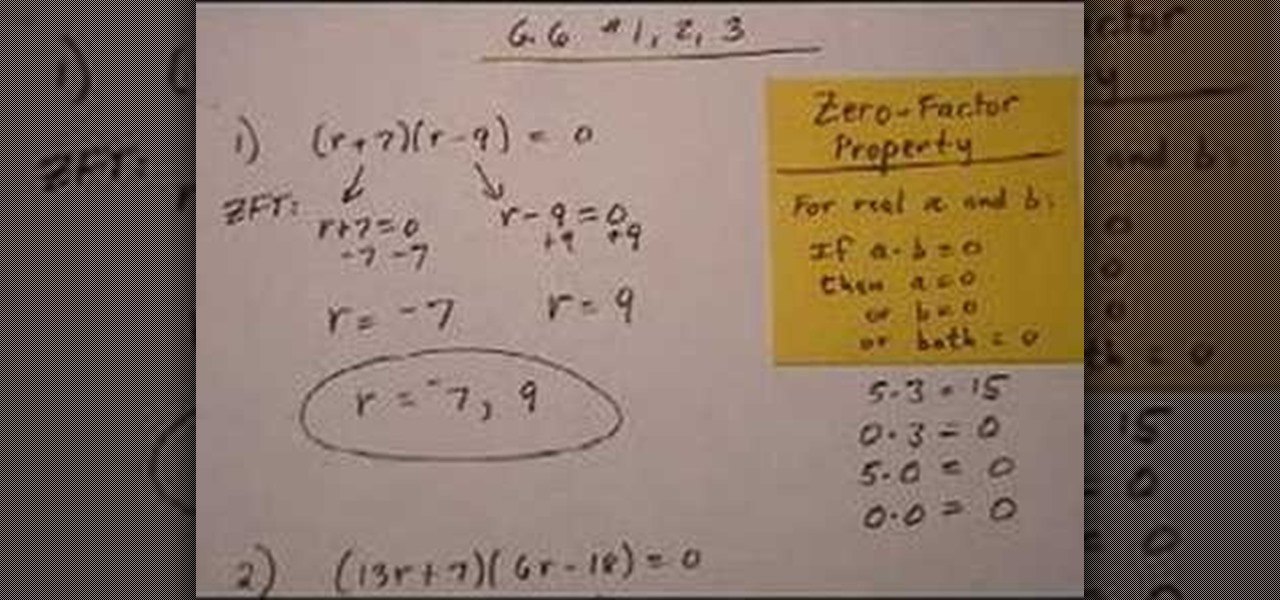
This is a great educational video on how to solve quadratic equations by factoring. Let us take an example and try to learn the method. Here is a quadratic equation: (r+7) (r-9) = 0. Consider zero-factor property. For real a and b, if a.b = 0, then a = 0 or b = 0 or both are equal to zero. So r+7 = 0 or r-9 = 0 > r = -7 or r = 9. Hence, r = -7, 9. Similarly to solve a quadratic equation (13r+7) (6r-18) = 0, we will get 13r = -7 or r = -7 over 13. Also 6r = 18 or r = 3. So r= -7over 13, 3. Thi...
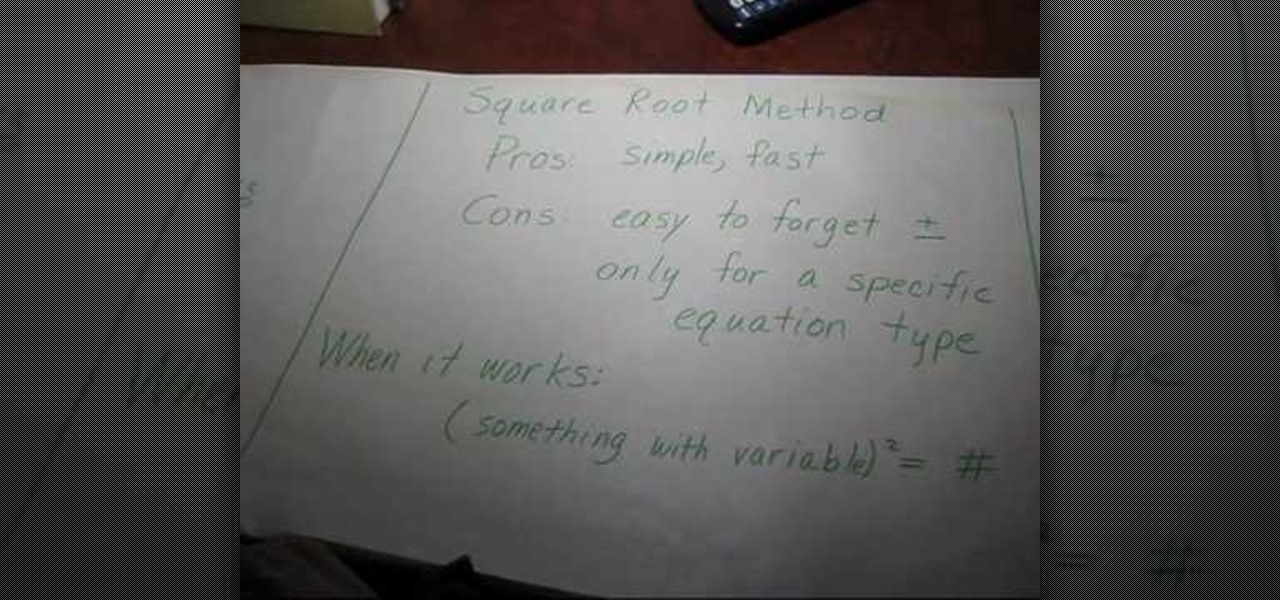
In this video the instructor shows the different methods of solving quadratic equations. There are many methods to solve quadratic equations each with its pros and cons, each method suitable for a particular situation. The first method to solve quadratic equation is factoring. The advantage of using this method is that it is quick and easy. But the problem is not all equations can be factored very easily. This method requires a lot of practice and intuition. Use this method when the discrimin...
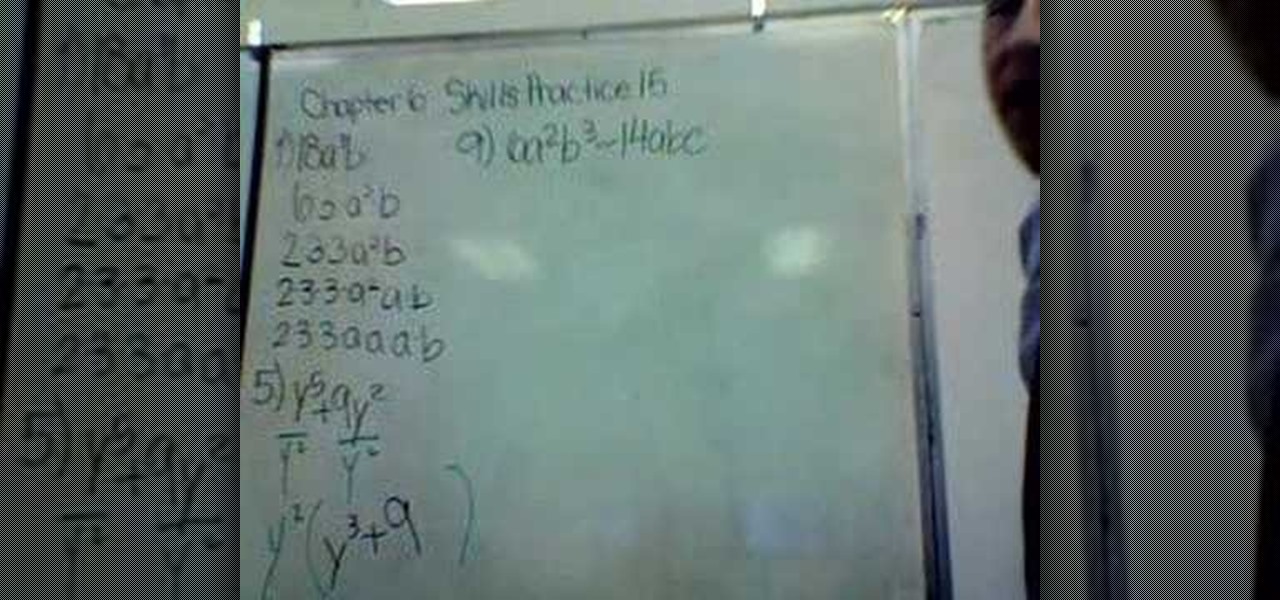
In this video the instructor shows how to factor the GCF and difference of squares. When you are asked to factorize a number or monomial or a polynomial, the way to do is break it down into individual terms. When asked to factorize a binomial, try to pull out any common terms and factorize the simplified equation. When you are asked to factorize the difference of squares use the general formula which states that the factors of (a*a - b*b) is (a-b) * (a+b). Now substitute the given values in t...
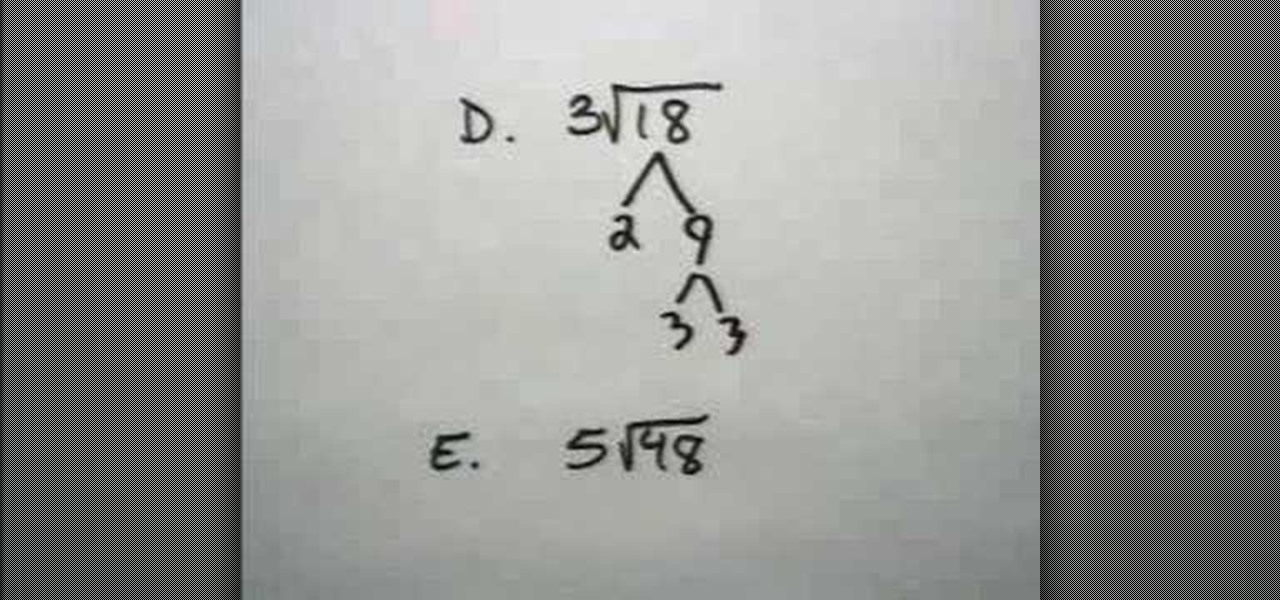
This is a video tutorial on how to simplify square roots. To simplify square roots, one must have the knowledge of splitting numbers into prime factors. For example,12 can be split into 4*3 and further more into 2*2*3. Here we see that all the factors are prime numbers. So the square root of 12 can be written as 2*square root of 3(as shown in the video). The method used in the video is applicable for simplifying any square roots as any number can be split into prime factors. Follow the video ...
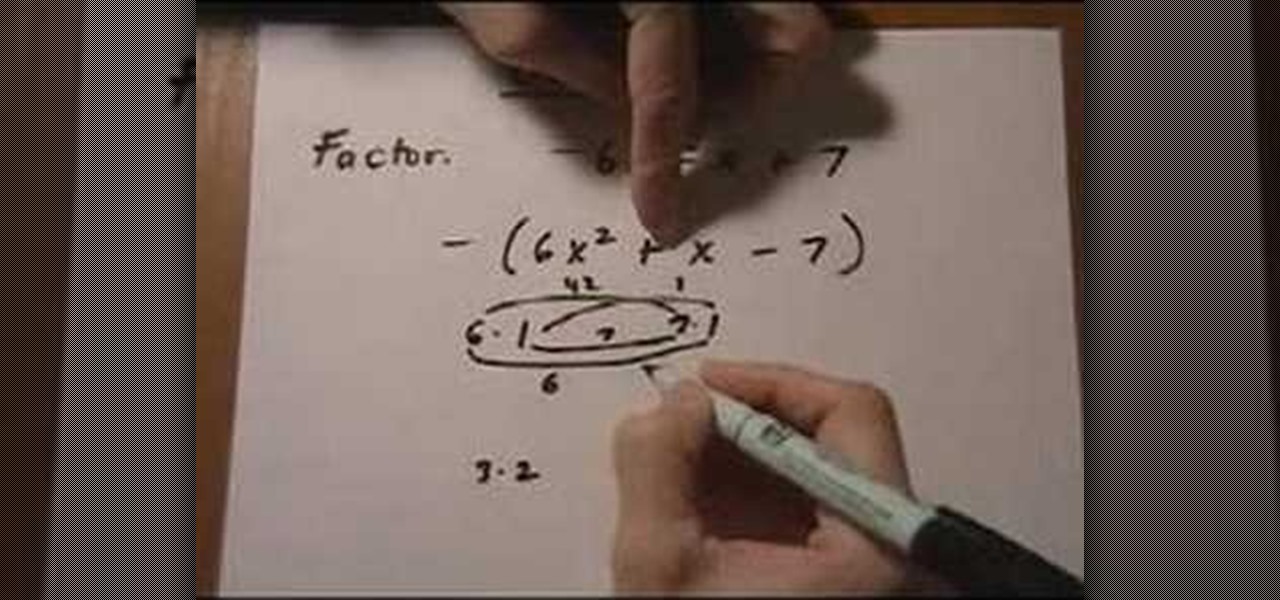
This video shows the method to factor a trinomial with a negative sign in the front. The first step is to make the first term positive. This is done by taking the negative sign out. Then we see the middle term of the trinomial. The coefficient of the middle term is a positive one in the example shown. We have to group the coefficient of the first and third term in a way so that the difference is positive one. The appropriate combination is chosen so that this becomes true. In this way the tri...

318770 Multiply or divide rational expressions. Here Ms Robichaudd guides you nicely that how to multiply or divide rational expressions. She starts with divide and simplify. In first step she shows you how she multiplied and flip. And then to simplify it more she took out the common factor from the bracket to cancel the same numbers from numerator and denominator. In next step she multiplied across and got the final answer. And then she gives other example, Multiply and Simplify. Here again ...
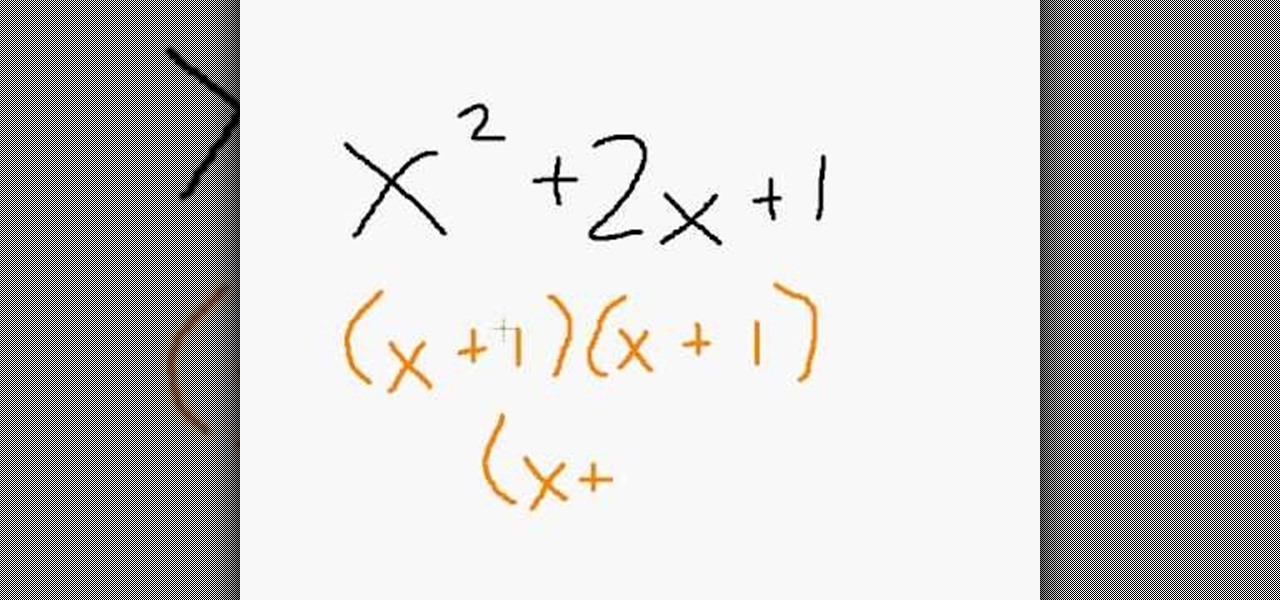
Math Made Easy offers some great SAT Test Prep. It helps you master the factoring and simplification of any kind of algebraic equation or expression. An expert math instructor provides easy to follow real-time chalkboard examples to help you work your way through step-by-step. It discusses when and when not to use the FOIL method. It demonstrates some of the most common factoring problems that you are likely to see on the SAT. With Math Made Easy, you don't have to let those trinomials scare ...
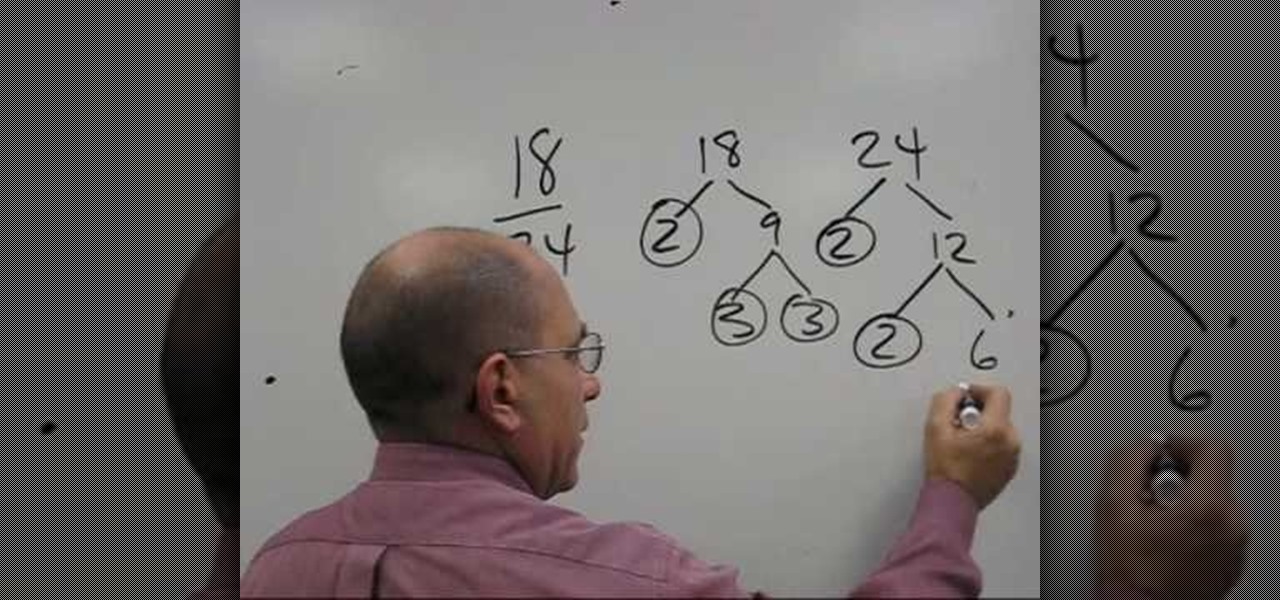
In this math tutorial, you will learn how to reduce fractions using the prime factoring method. The narrator, a math teacher, of the video begins by defining what prime numbers are. This is important to know. When reducing fractions you need to reduce both the numerator and the denominator down to numbers that cannot be reduced by any other numbers but 1 and itself (prime numbers). The method the video teaches is to find the prime factors of both numerator and the denominator to simplify the ...

A video from free math tutoring that teaches you a method of factorization of a complex polynomial. The tutor shown in the video demonstrates how to factorize common functions of a variable by the factor method. This video isn't for advanced learners of mathematics. It is for beginner to intermediate level viewers.

Two-factor authentication has been around since iOS 10. It's a handy option that adds an extra layer of security to your iPhone and makes its almost impenetrable security even stronger. This feature has remained intact in iOS 11 and iOS 12, and thanks to the straightforward nature of iOS, is relatively easy to enable.

If you're just getting started in photography or if you're looking to learn a little bit more about your camera, then you may have run into the term "Aperture" or "Aperture Values", or those weird number numbers. Aperture is in the lens of your camera and determines how much light enters into the lens itself and helps to determine your focal length. In this video you will get a small lesson on what Aperture is, and how to calculate focal length and aperture values.

From Ramanujan to calculus co-creator Gottfried Leibniz, many of the world's best and brightest mathematical minds have belonged to autodidacts. And, thanks to the Internet, it's easier than ever to follow in their footsteps (or just finish your homework or study for that next big test). With this installment from Internet pedagogical superstar Salman Khan's series of free math tutorials, you'll learn how to determine the eigenvalues of 3x3 matrices in eigenvalues.

In this Video Games video tutorial you will learn how to determine what is the brand of your Xbox 360 drive. This is a very easy and simple process. There are four brands of drives in the Xbox 360. They are Hitachi, Samsung, BenQ and LiteOn. For this you need to take the face plate off and check the hole under the DVD bezel. If you see a red wire, it's a Samsung drive. If you see a piece of black plastic, it is a Hitachi drive. A gray wire indicates a BenQ drive and if it's a LiteOn drive, yo...

From Ramanujan to calculus co-creator Gottfried Leibniz, many of the world's best and brightest mathematical minds have belonged to autodidacts. And, thanks to the Internet, it's easier than ever to follow in their footsteps (or just finish your homework or study for that next big test). With this installment from Internet pedagogical superstar Salman Khan's series of free math tutorials, you'll learn how to calculate the probability of two dependent events in statistics.

Jessi Stensland, professional triathlete, explains how selecting the right bike can mean the difference between a comfortable ride and possible neck, back, knee or shoulder pains. Stensland first takes us through finding the right bike size with charts such as those available on Schwinn bikes. After the right size is determined, riders should determine the proper fit by adjusting their bike's handlebars and seat. Lastly, Stensland instructs bike riders on how to choose the proper saddle.

John White of Southwest Yard and Garden along with Kitty Schafer teach you about bio-intensive gardening. Bio-intensive gardening is the combination of two techniques. Part of the technique involves composting top soil with other coarse organic material into a lasagna style mound. Add 2 inches of straw to the soil and spray with water. Add 2 inches of green material that you have collected from other area of your garden, such as bug eaten greens or specific greens for composting. Then add som...
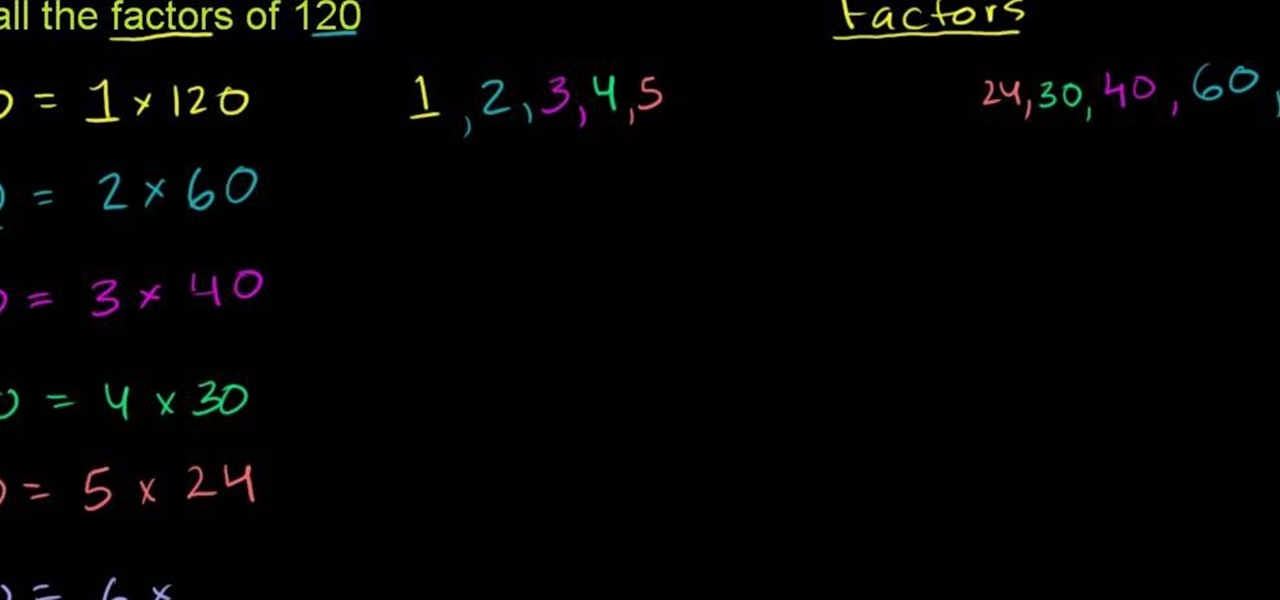
From Ramanujan to calculus co-creator Gottfried Leibniz, many of the world's best and brightest mathematical minds have belonged to autodidacts. And, thanks to the Internet, it's easier than ever to follow in their footsteps. With this installment from Internet pedagogical superstar Salman Khan's series of free math tutorials, you'll learn how to calculate the constituent factors of a number.

Scouring the web for instructions on how to factor quadratic equations in algebra? Look no further. This free video algebra lesson will teach you how. From Ramanujan to calculus co-creator Gottfried Leibniz, many of the world's best and brightest mathematical minds have belonged to autodidacts. And, thanks to the Internet, it's easier than ever to follow in their footsteps (or just finish your homework or study for that next big test).

There are a lot of things that can cause decline in plants. Some are caused by insects or diseases and some are caused by environmental conditions, known as abiotic factors. Consequently, it can be hard to diagnose which, or what combination, of the above factors are resposnible for the poor health of your plant. In this green video tutorial, you'll learn how to troubleshoot plant problems. To learn what it takes, take a look.

To determine what is causing your windshield wipers to malfunction and not work, it is important to investigate the wiper motor and switch to determine if either is causing the problem.

If you're interested in forensic toxicology and are trying to determine the presence of salicylate by using a visual colorimetry, then look no further. This indepth and compelling video takes you into world of salicylate determination.

Are you thinking of trading in your 6mpg Hummer for something a little more efficient? Well, if you've got an electric or hybrid car in mind, this video will show you how to make a choice that works for you. With a little program called Electric Car Calculator, you can determine if the savings are worth it for you to get into one of today's hybrid or electric cars.
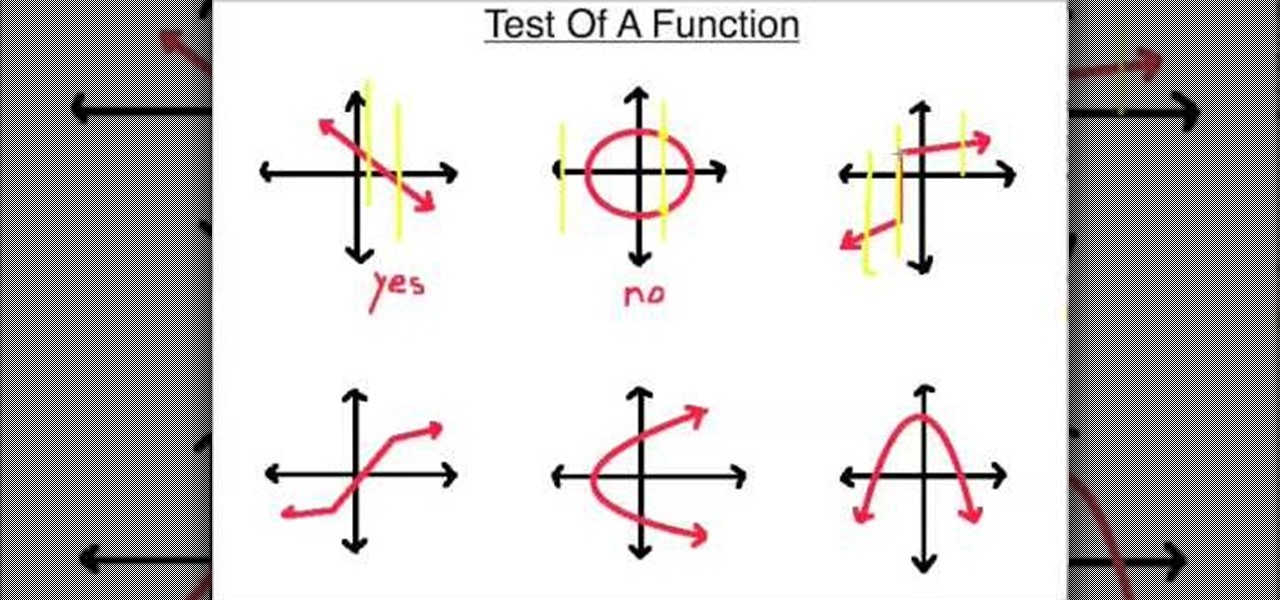
In this tutorial, we learn how to determine if you have a function. You will start off with two functions and their points. The 'x' values make up the domain of the function and the 'y' values make up the range. The input values are the domain and the output are the range. If you're checking to see if you have a function, you will need one 'y' for every 'x'. This means that each value has another one that goes with it. Each of the points need to have one partner with them, no more and no less...

Avocados are one of the most popular fruits in the Americas, but determining whether one is ripe or not is somewhat arcane for many people. Watch this video to learn what to look for in an avocado and make sure you buy the ripest ones.

Eating spoiled meat is a really easy and terrible way to get sick. If you have some old beef in your refrigerator and you're not sure whether it's rotten or not, watch this video for tips on how to determine whether you meat is safe to eat.

In this free video science lesson from Internet pedagogical superstar Salman Khan, you'll learn how to determine the empircal and molecular formulas of a substance given percent composition. Whether you need help studying for that next big test or could just use a hand finishing your homework, you're sure to be well served by this video lesson. For more information, including detailed, step-by-step instructions, take a look.
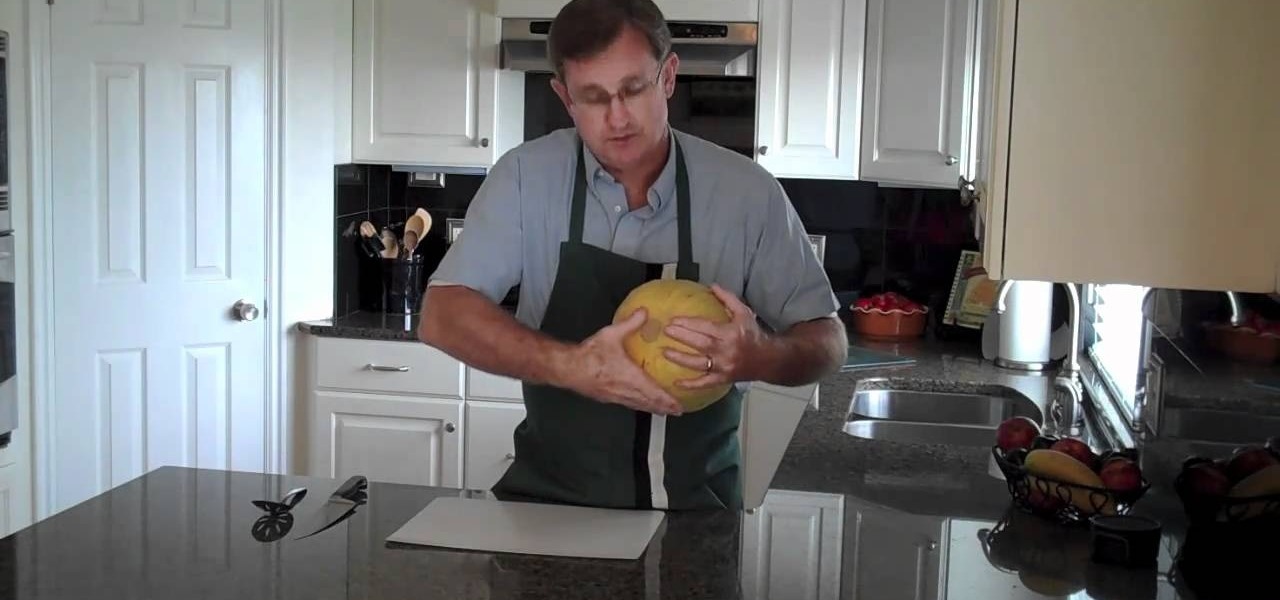
YourProduceGuy has some tips and information about determining the ripeness of Crenshaw melons in the produce department of your local grocery store. Crenshaw melons are a part of the muskmelon group, which includes honeydew melons, also. Watch the video and find out how to tell if it's ripe or not yet ready to eat.
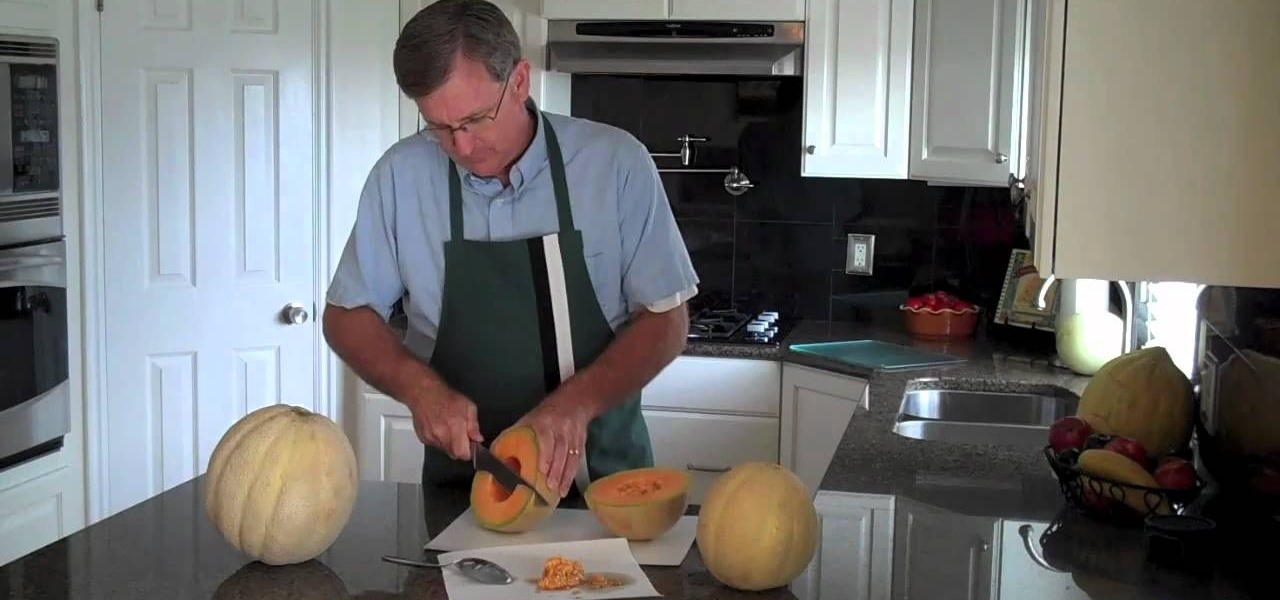
The cantaloupe is a troublesome fruit for some melon shoppers, because it's a really hard fruit to tell the ripeness of, like most hard-shelled melons. If you've been riddled with how to bring home the ripest and freshest cantaloupe melon, then YourProduceGuy has answers for you. See how to determine the ripeness of this delicious melon.

Every fruit has a tell. A tell is the perfect way to determine whether or not the fruit is ripe or not, and this video tip from YourProduceGuy will show you exactly what that tell is for honeydew melons. Watch the whole melon video, to make sure you don't bring anymore rotten honeydews home from the grocery store.